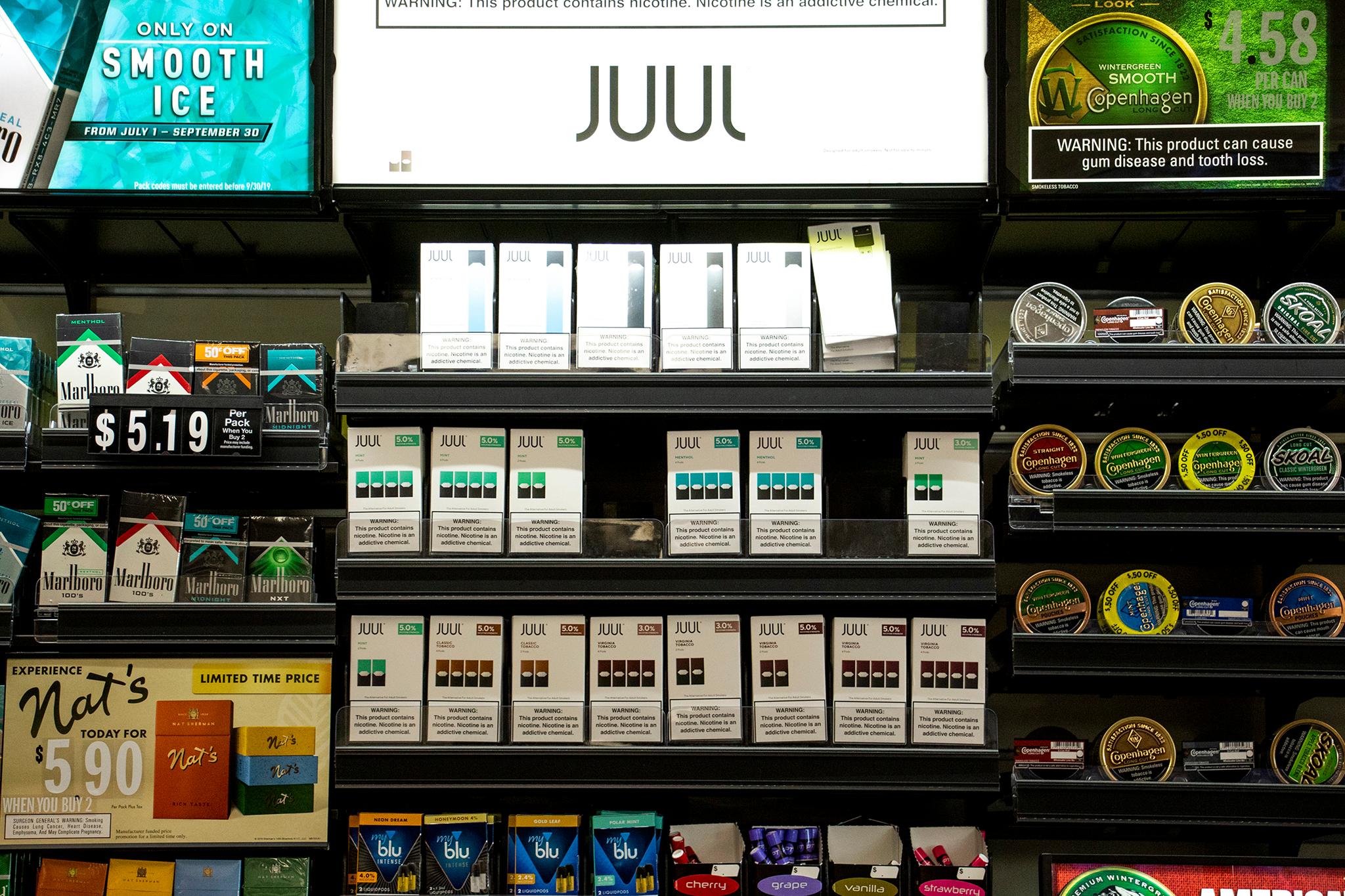
Coloradans spend tens of millions of dollars each year on flavored tobacco and vaping products. Now, the legislature is debating a bill to ban them — but the fate of the measure, which has divided some of the state’s most influential Democrats, is still uncertain with just a few weeks left in this year’s session.
The fight has sparked intense discussion not just about public health and personal liberty, but also racial justice. And it’s even raising some fundamental questions about how the state makes money off of harmful products.
For many proponents of the ban, the fight is personal, since flavored tobacco has had a profound influence on their lives and the lives of their loved ones.
“I’m Black in America. My dad was a smoker,” said Democratic Rep. Jennifer Bacon, one of the bipartisan bill’s prime sponsors, who recalled still having old Ebony and Jet magazines from the seventies and eighties, filled with ads for menthol cigarettes.
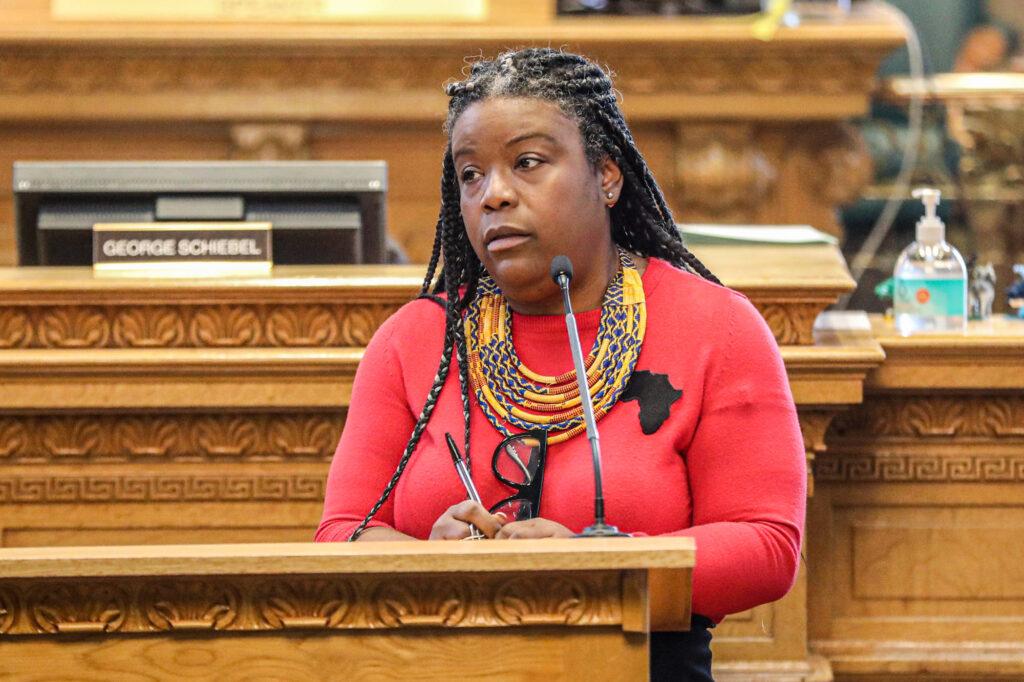
“At the end of the day, the things that we are using, that’s hurting our bodies… we were made to want to use through business efforts,” said Bacon, an educator. “And I’m tired of losing my family members. No one’s paying attention to our community being overly impacted with stroke and heart disease and then simultaneously marketed to.”
This year’s bill, HB22-1064, prohibits retailers of cigarettes, tobacco or nicotine products from selling or marketing any flavored product. Those are defined as products “imparting a taste or smell other than the taste or smell of tobacco.”
The specific kind of flavored cigarette many Black Coloradans smoke — menthols — are right at the center of the ban, but it also would cover newer products, like the fruit- and candy-flavored vape liquids that are attracting a new generation of users.
Another co-sponsor, Democratic Rep. Kyle Mullica, said bringing up the policy this year is a big step for Colorado, although a similar policy failed just two years ago.
“I think it shows that Colorado is taking this issue seriously,” said Mullica. “That we're going to do something about it and we're not going to stand by while big tobacco and the vaping industry markets to our kids and gets our kids addicted to these products that make them lifelong customers.”
However, those on the other side of the debate say tobacco-using adults should be allowed to make their own choices in what they purchase, and they argue flavors can be key to helping people to quit.
“Nicotine vaping is the single most effective smoking cessation method ever devised. And the most appealing reason people are able to switch is because of the variety of flavors,” said Amanda Wheeler, president of the Rocky Mountain Smoke-free Alliance, a trade association representing about 200 locally-owned Colorado vapor businesses.
All told, the fight is shaping up to be one of the most expensive at the Capitol this year, and the fate of the effort remains very much up in the air.
Menthol's long-lasting impact on Black Americans and new grip on youth
Advocates and lawmakers are focused on flavors — whether it’s menthol or fruity vapes — because they can make nicotine products more attractive and more addictive.
Menthol is a cooling agent that makes it “more tolerable to take up this very hard substance, which has no medical value or health value whatsoever, into your mouth and into your lungs,” said Dr. Georges Benjamin, the executive director of the American Public Health Association. He made the comments during a recent interview about health equity, from Washington Post Live. “And as you can imagine, the tobacco industry has figured out that if you add this substance to their toxic product, then people are much more likely to use it.”
While smoking among adults has been on the decline, tobacco remains the “leading cause of preventable disease, disability, and death” in the nation, according to the Centers for Disease Control and Prevention. According to the proposed bill, that amounts to more than 480,000 Americans each year, including 5,100 annually in Colorado.
When it comes to menthol cigarettes, the toll has been particularly pronounced in the African American community, which was targeted for years by ads for the products.
African Americans make up about 12 percent of the U.S. population. But they comprised 41 percent of all menthol-smoking-related premature deaths between 1980 and 2018. That’s according to a recent study in the journal Tobacco Control.
Menthol has a history that goes back decades. But flavored vapes, at the heart of the debate over teen use, arrived relatively recently, fueled at first by the popularity of JUUL products and then other similar competitors.
Surveys have shown that many teens start with flavored products, like cotton candy, fruity, menthol and minty flavors. Nearly seven out of 10 youth in the U.S. who were current tobacco users reported they used a flavored tobacco product, according to a 2019 report by the CDC.
Public health advocates and officials worry sales and use of vapes could be an emerging disaster, turning back years of declines in smoking and bringing a range of health impacts that are not yet well-understood. And in 2020, Colorado Attorney General Phil Weiser sued e-cigarette company JUUL Labs, Inc., over what he said were efforts by the company to market to youth.
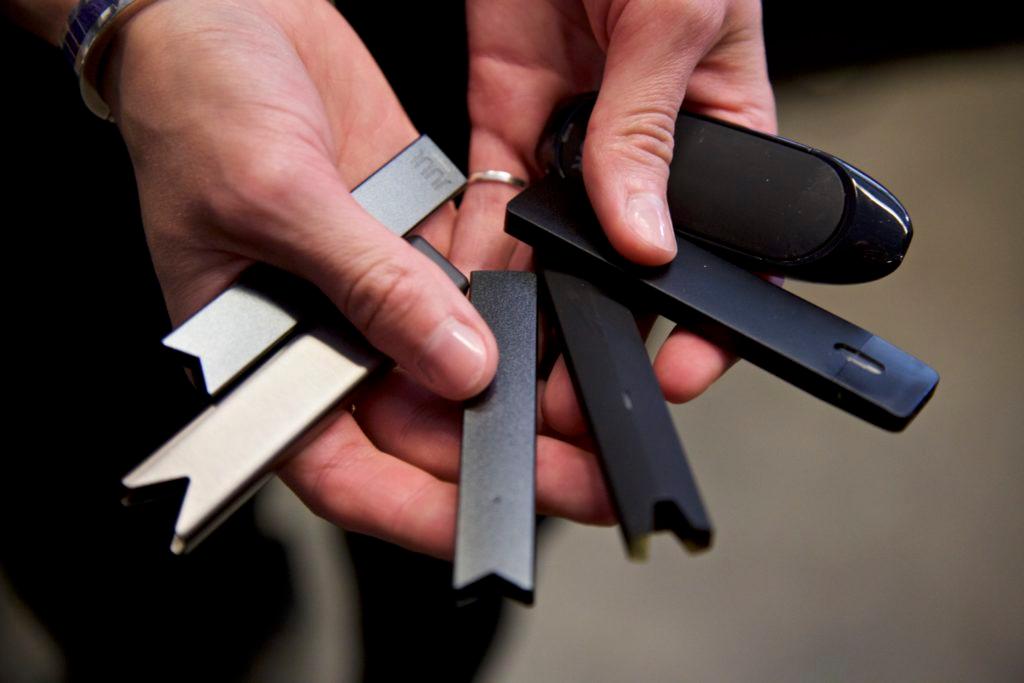
A national fight comes to the state capitol
The policy fight in Colorado mirrors those being waged nationally and in other states. The FDA has been considering a national menthol ban since last year.
Reformers are up against a big, powerful and profitable industry. One estimate, on the website statista, reported tobacco is a $100-billion-dollar-a-year business nationally, in terms of revenue. It’s estimated to spend more than $8 billion per year on marketing — including more than $125 million in Colorado, according to data on the website for the Campaign for Tobacco Free Kids.
For their part, tobacco companies raise a wide variety of reasons why bans aren't the way to go.
“We share the goal of moving adult smokers from cigarettes to potentially less harmful alternatives, but prohibition does not work,” the tobacco giant Altria states on its website. “Criminalizing menthol will lead to serious unintended consequences, including an illicit market, an impact to state and federal excise taxes and master settlement agreement payments, and to jobs throughout the legitimate distribution chain.”
However, efforts to limit tobacco and nicotine products have seen some success in recent years, especially with the reform push known as Tobacco 21, a national campaign to raise the minimum legal age from 18 to 21 for sales of tobacco and nicotine.
The movement started by getting cities to raise the age, and then states around the county joined the push. Colorado lawmakers passed, and the governor signed Tobacco 21 legislation in 2020 — and the federal government also raised the age nationwide.
But health advocates hoped for more stringent regulations and, as they waited for more federal action, began pushing to limit flavors.
This year’s debate
The flavor ban bill is sponsored by an interesting mix of lawmakers, including Mullica. He’s an E.R. nurse, the only one in the legislature currently. Mullica said he’s been working on the nicotine issue for some time, but this is the biggest bill he’d tackled on this subject.
“We need to help those kids who have already gotten addicted, but we need to also have policy in place to make sure that next generation doesn't become addicted as well,” he said.
Rep. Bacon, who previously served on the Denver School Board, has also seen the impacts of teen use.
“It is out of control. We see the pods, the vape devices, we see kids ducking and diving,” she said, using an expression for how users surreptitiously vape at school.
While the bill is primarily supported by Democrats, Republican Sen. Kevin Priola is among the sponsors. Priola is a moderate who represents a swing district in Adams County, where he works in commercial real estate.
For him the issue couldn’t hit closer to home — his son started vaping as a teen and struggled to stop.
“It was obvious he was addicted to it. He would say he could give it up, but he couldn't,” Priola told CPR in 2020, when his son was 17.
The Priolas decided as a family to speak out about their struggles, hoping to educate people about the rise and dangers of teen vaping.
The bill has been moving slowly through the legislature, where Democrats hold the majority.
It was introduced very early — just two days after the session began back in January. But now months later, it is held up in the committee process, and has to get to a floor vote.
Intense pressure from both sides has made it the third most lobbied bill this session, according to an analysis by the Colorado Sun: 141 lobbyists representing 87 clients.
Hearings in a pair of House committees spotlighted a furious debate that touched on a sprawling set of issues involving public health and retailers’ revenue, addiction and cessation, personal choice and government regulation.
Lawmakers heard hours and hours of testimony. On one side, it was exasperated moms and educators, doctors and public health folks. On the other, worried adults who say vaping products helped them quit, plus vape shop owners and employees, saying these products made up a healthy share of their revenues.
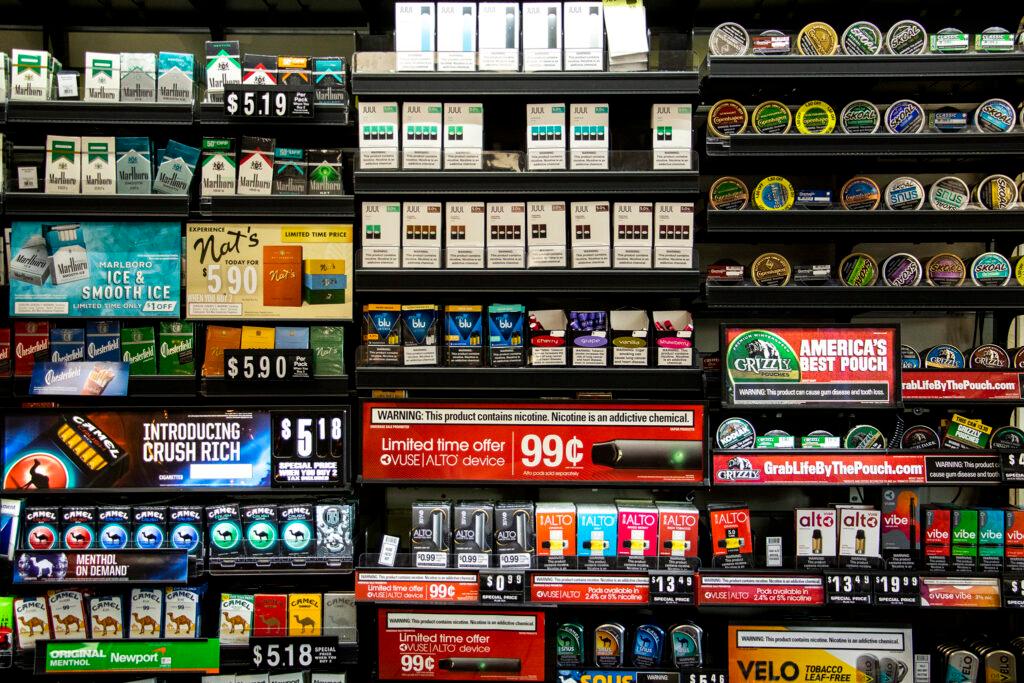
A spokeswoman for the Smoker Friendly chain said they’d lose 30 percent of their business. They argue the measure would hurt Colorado businesses while driving — literally — consumers over the border to stores in Wyoming. They also warn those same purchasers will just fuel a black market for the product in Colorado.
Jason Casados from Vapor Source, a company in Pueblo, told lawmakers he supports efforts to keep flavored tobacco out of the hands of minors, but a ban would put him out of business.
“I've been in this industry for 13 years. I employ over 35 full-time employees. Ninety-eight percent of our products that we sell and manufacture are flavored nicotine products,” he said.
The bill also faces some resistance from some Democrats, like Rep. Chris Kennedy, who doesn't want to see an across-the-board ban. He introduced an amendment that would have allowed certain stores, like age-restricted vape shops, to keep selling the products.
“I think that what I was hoping to do with my amendment and committee was to drive a conversation about trying to achieve the goal of reducing youth access without impairing adult access,” he said. “There are reasonable differences of opinion. The sponsors feel pretty strongly that you can't do both at the same time. And, I wanted to explore the possibility that maybe we could.”
His amendment was later stripped out.
For bill supporters though, their biggest hurdle may be just one man: Gov. Jared Polis
One sponsor acknowledged it’s not Polis’ favorite bill, which isn’t surprising. The Democratic governor is known for having a libertarian streak and this bill would tell adults they can’t make the decision to use a product they might want to use.
In an interview this week on Colorado Matters, the governor reiterated that he’d rather see these policies happen at the city and county level.
“I support local control on a wide variety of issues and exactly what gets sold with marijuana or nicotine or alcohol is a local decision. I'm against statewide prohibition of alcohol or marijuana or tobacco, but if a community doesn't want to have a dispensary or doesn't want to have vape, that is completely their prerogative,” he said.
The paradox behind a key Polis priority
For Polis, a statewide ban on flavored nicotine products wouldn’t just violate his political principals — it could also endanger one of his top policy priorities. He successfully pushed a ballot measure two years ago to raise the tax on tobacco and vape products to bring in money for free universal preschool.
If the flavored tobacco ban were to pass, that would drain millions of dollars from the program. An initial fiscal analysis predicted losses of nearly $40 million in yearly tax revenues if the ban is enacted, with $25 million of that being borne by the preschool program. The preschool program has a total yearly budget of $167 million.
However, that impact could be lessened if it turns out users simply switch to unflavored products instead of quitting, a later analysis said.
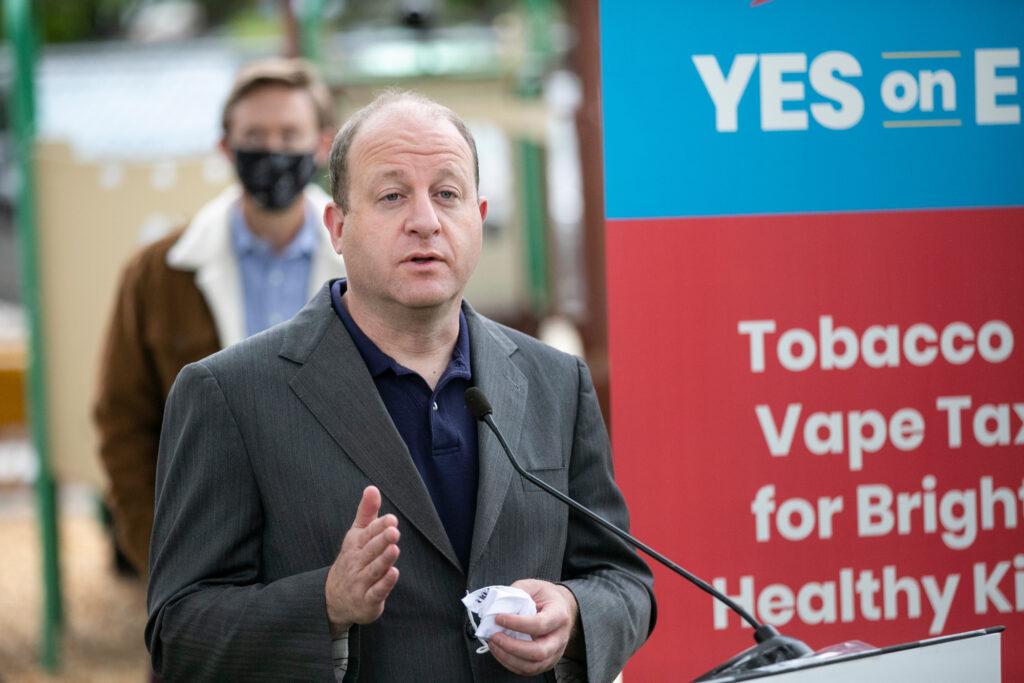
The issue has some at the Capitol voicing concerns about using so-called sin taxes to support key public services.
“I would love to have the discussion about just how outrageously ridiculous that it is to fund things with sin taxes,” said Democratic Rep Marc Snyder of El Paso County, during a hearing for the bill. “It's ridiculous that we don't recognize that we're trying to create a social policy to get people off of these products, and yet we're funding essential services with the high taxes we levy on those.”
Polis recently told CPR he has no qualms about tying his preschool program to tobacco tax revenues, arguing that education is a relevant area to fund. He also noted the increased taxes support smoking cessation programs as well.
With Polis opposed, high-powered lobbying on both sides, and the end of the legislative session rapidly approaching, the bill’s future this year looks increasingly cloudy.








